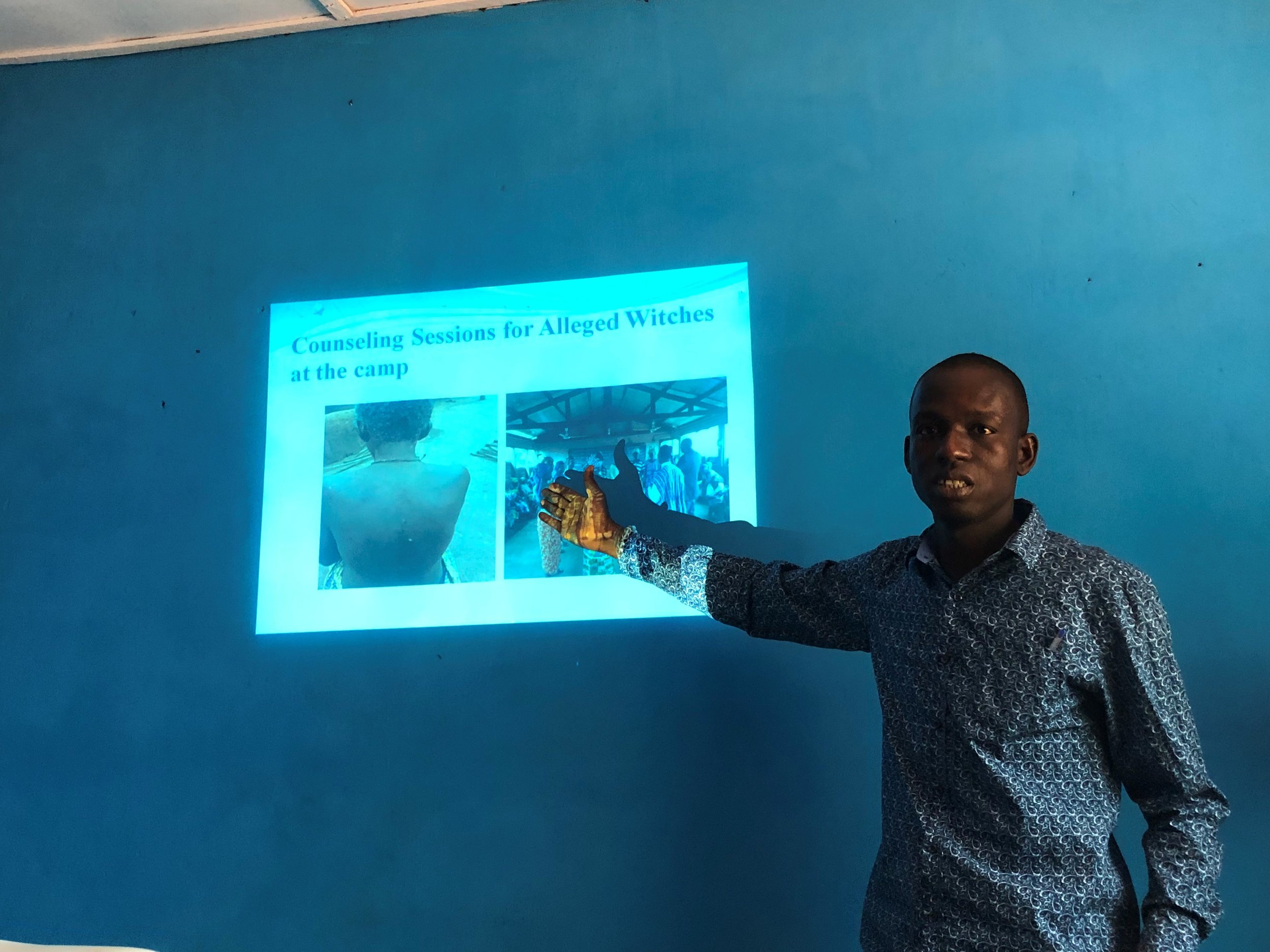Ghana #6: Identity in Christ
by Rafael de Castro Guedes, Member and worship leader of the Central Independent Presbyterian Church of Presidente Prudente (Sao Paulo State) and Lawyer.
“Sanctify them in the truth; your word is truth. As you have sent me into the world, so I have sent them into the world. And for their sakes I sanctify myself, so that they also may be sanctified in truth.
I ask not only on behalf of these, but also on behalf of those who will believe in me through their word, that they may all be one. As you, Father, are in me and I am in you, may they also be in us, so that the world may believe that you have sent me. The glory that you have given me I have given them, so that they may be one, as we are one, I in them and you in me, that they may become completely one, so that the world may know that you have sent me and have loved them even as you have loved me. Father, I desire that those also, whom you have given me, may be with me where I am, to see my glory, which you have given me because you loved me before the foundation of the world.
Righteous Father, the world does not know you, but I know you; and these know that you have sent me. I made your name known to them, and I will make it known, so that the love with which you have loved me may be in them, and I in them.” (John 17:20-26)
This section reveals that the Son of God in intimacy with the Father, prays for all believers, conferring the identity of the children of God to all who believe in Him.
Human nature requires an identity, which gives it personality, dignity, and distinguishes it from other people.
From a legal point of view, it is fundamental that any person has an identification document. Such document guarantees the individual: 1) Belongs to a nation; 2) Belongs to a family, has a father and a mother, whose names will be forever in their identity; 3) Has a name, a face, and a fingerprint that distinguish them from all other individuals, making them unique; 4) Finally, this identity confers on the individual the status of citizen, being able to enjoy numerous rights, while it has the duty to fulfill certain obligations.
In the practice of law, I find myself every day dealing with cases in which the person seeks the recognition of some of the guarantees that the identity gives him. One of the cases that struck me the most was when I filed a paternity recognition action for a boy, however, the DNA test was negative. It was very painful to see in the face of that boy the disappointment of knowing that it was not generated by the person he always imagined being his father. Another very serious problem related to the identity lived today is the refugee situation, since they cannot enjoy the rights and duties of the nation in which they have come to reside.
Identity is, for this and many other reasons, very important in building the personality and character of an individual.
In the prayer, Jesus says that the Father has conferred the status of children of God, to all those who believe in him. Therefore, through Christ we have a new identity, no longer an identity created by men, but rather an identity created by God before the foundation of the world. In Jesus we become part of a new nation, for we belong to the Kingdom of God. Through Christ we become the children of God, the most sublime of all and any parentage. When we accept Jesus as our Lord and Savior, the surname "Christian" is added to our surname. Our fingerprints, as it where, become the fingerprints of the Son of God. In a spiritual sense, when we present our identity, it is no longer our face that should appear in the picture but the face of Jesus Christ.
When Jesus gives us the status of citizens of the Kingdom of God, we are given the highest of all rights, which is the forgiveness of our sins and the guarantee of salvation and access to God’s eternal reign. However, many forget that acquiring these rights entails responsibilities, such as loving others, as well as being involved in the great commission of announcing the gospel of Christ to all nations, being "witnesses in Jerusalem throughout the world. Judea and Samaria and to the ends of the earth" (Acts 1: 8).
It has brought me much happiness to witness and to see reflected the image of Jesus in the lives of the brethren of the Presbyterian Church of Ghana. I witnessed a living church, which faithfully and earnestly fulfills the challenge of proclaiming the gospel, experiencing impressive growth. In addition, they actively participate in building a better and less unequal society, actively working in the areas of health, education, labor cooperatives, and social services.
The conviction and joy with which these brethren share the word of God and worship the Lord, even in the midst of so many difficulties, can only come from people who are fully aware that they are children of God and are sufficient and satisfied in him. Going to inhospitable villages where poverty prevails and seeing the happiness with which they praise and adore the name of the Lord, has given me assurance that their hope and joy is not in the things of this world but in the eternal life that they have through our Lord Jesus Christ.
These new friends welcomed us with an awesome love. In the last days of our journey we were invited to sing with them a song in one of the Ghanaian languages that says: "In Him we are one, in Him we are one," which clearly expresses their sense of unity and desire of being in communion.
In Ghana, the identity of the Presbyterian Church is stamped everywhere, clothing, cars, buildings, key chains and flags, and so on. Their Presbyterian roots are greatly celebrated, and being a Presbyterian is a matter of respect and pride. For them it is a way of showing that that their identity is grounded in Christ, and that is enough.



